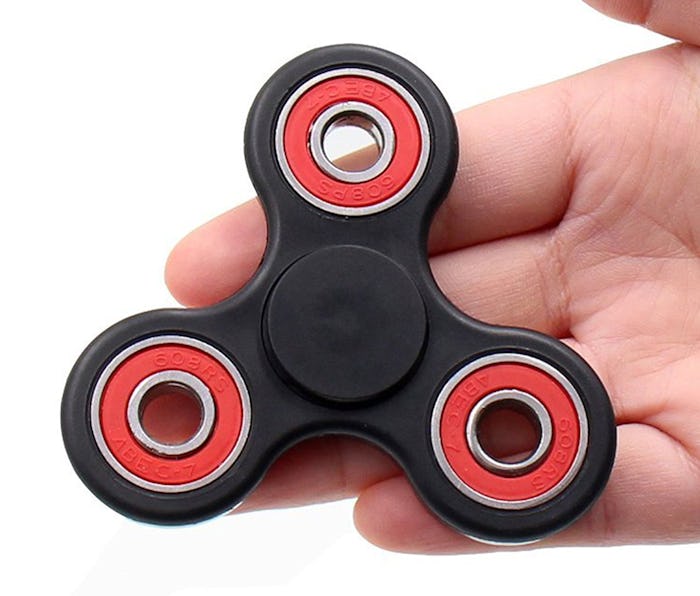"Mommy, can you please get me a fidget spinner," is all I have been hearing from my 8-year-old recently. It turns out, there's a new fad called fidget spinners and they seem to be all the craze right now among young kids. They are also being widely marketed as calming toys, but can fidget spinners help with anxiety?
Fidget spinners are propeller shaped discs that contain spinning ball bearings that allow you to spin them on your fingers or on a table. They are available at toy stores and online, and are a pretty affordable fun toy that even adults may enjoy. Many fidget spinner sellers are advertising them as stress relievers, and some even claim that they are helpful for kids with Attention-Deficit/Hyperactivity Disorder (ADHD), autism, and anxiety, according to U.S. News and World Report.
So are they? Calm Clinic noted that anxiety can affect the whole body, most notably the hands and fingers, and can include shaking, tingling, restlessness, and cramping. But fidget spinners, also called spinner rings, are not magical toys that miraculously calm you — they are just a way to fidget, and fidgeting in itself is a calming mechanism.
The website also noted that the actions of acknowledging that you have anxiety, along with using a fidget spinner to bring yourself into the present, can be calming in their own way.
When it comes to children, Brain Balance Achievement Centers suggested that kids fidget when they are doing tasks that are not stimulating enough to sustain their focus. Gaining sensory-motor inputs through fidgeting can stimulate a child's brain and allow them to focus on their present tasks.
Fidgeting is a tool used to cope with anxiety, and it seems that fidget spinners can be used as a tool to help fidget. Whether it is for anxiety, to find focus, or just to have fun, fidget spinners look like a cool toy that will leave you with a spinning good feeling.
